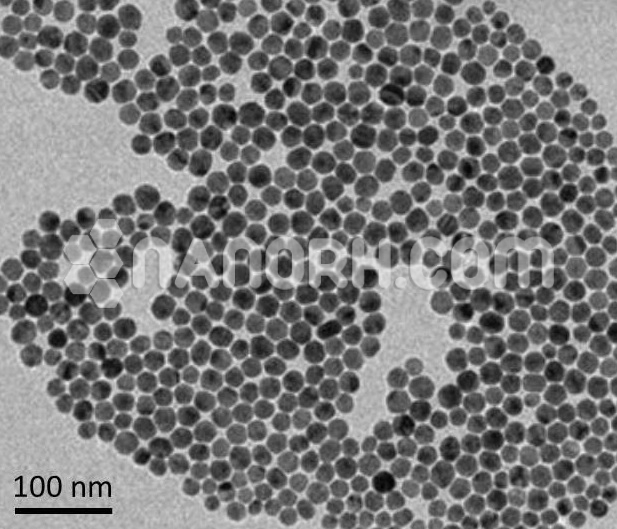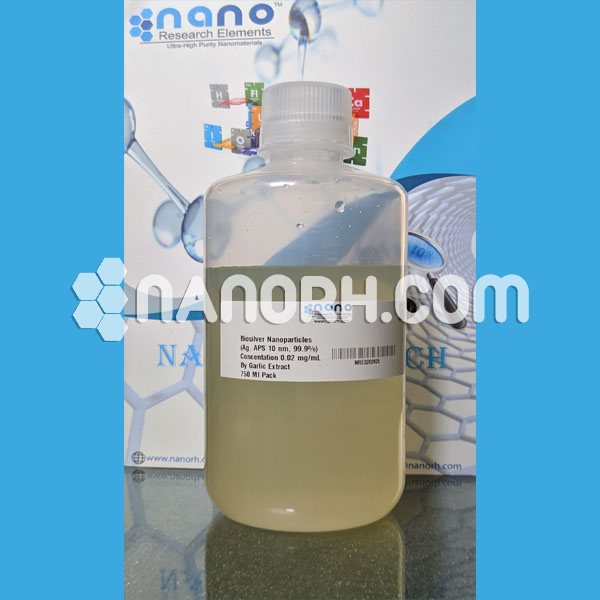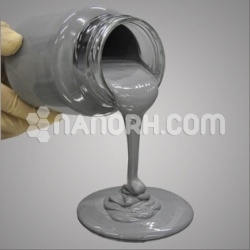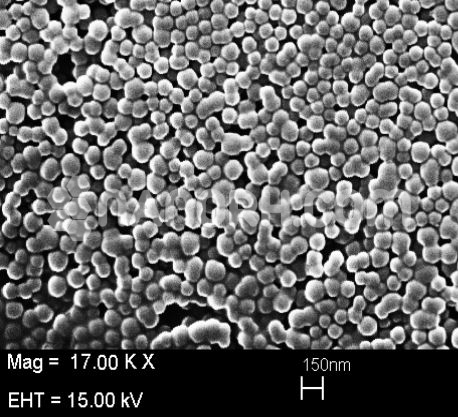Platinum (Pt) Nanopowder / Nanoparticles Water Dispersion (Pt Nanoparticles Aqueous Dispersion, 3nm, 100ppm, Black Color)
This product does not contain any other chemical components. It is safe, non-toxic and environmental protection. The product is for the purpose of research and development! (To dilute it to your desired concentration, only add pure water and shake it up!)
| Platinum (Pt) Nanoparticles Water Dispersion | |
| Product No | NRE-22016 |
| CAS No. | 7440-06-4 |
| Formula | Pt |
| Molecular Weight | 195.078 g/mol |
| APS | <3nm (can be customized) |
| Purity | 99.9% |
| Color | Black |
| Concentration | 1,000-1,300ppm |
| pH | 7±0.5 |
| Solvent | Water ( As Per Requirement) |
Platinum (Pt) Nanopowder / Nanoparticles Water Dispersion
This product does not contain any other chemical components. It is safe, non-toxic and environmental protection. The product is for the purpose of research and development! (To dilute it to your desired concentration, only add pure water and shake it up!)
Cautions:
1. Platinum (Pt) Nanopowder water dispersion should be prevented from sunlight.
2. Platinum (Pt) Nanopowder is for research and development purpose and the user must be a professional person (This person must know how to use this product.)
Platinum (Pt) Nanopowder Aqueous Dispersion Product Features:
1. Platinum (Pt) Nanopowder possesses many features: such as high efficient catalyst function, oxidation resistance function and Preservative function. 2. Safe and environmental protection. 3. Easy to be used
Platinum (Pt) Nanopowder Aqueous Dispersion Applications:
Widely used in a variety of catalysts, preservatives, antibacterial agents. Especially for food, cosmetics, medicines and so on.
Applications
Catalysis and Chemical Reactions
Hydrogenation Reactions: Platinum nanoparticles are widely used in hydrogenation reactions to convert unsaturated organic compounds (like alkenes and alkynes) into saturated ones. Dispersing platinum nanoparticles in water allows for faster and more efficient hydrogenation as the catalyst is uniformly distributed throughout the solution.
Fuel Cells: Platinum is the material of choice for proton exchange membrane (PEM) fuel cells, where it catalyzes the electrochemical conversion of hydrogen to electricity. In water dispersion, platinum nanoparticles improve the efficiency and lifetime of fuel cell catalysts by increasing surface area and maintaining uniform activity during the fuel cell’s operation.
Selective Oxidation: Platinum nanoparticles in water are highly effective in selective oxidation reactions, such as the oxidation of alcohols to aldehydes or aldehydes to acids, important in the chemical manufacturing industry.
Environmental Catalysis: Platinum is used in automobile catalytic converters to reduce harmful emissions like carbon monoxide (CO), nitrogen oxides (NOx), and hydrocarbons (HC). Water-dispersed platinum nanoparticles can enhance the efficiency of these catalytic processes by providing greater active surface area.
Energy Storage and Conversion
Hydrogen Storage and Fuel Cells: Platinum is widely used in hydrogen storage systems and fuel cells, as it catalyzes the conversion of hydrogen into energy. Water-dispersed platinum nanoparticles can enhance hydrogen absorption/desorption cycles and fuel cell performance, making them more efficient and durable.
Supercapacitors: In energy storage systems like supercapacitors, platinum nanoparticles help improve charge storage capacity and cycling stability. The dispersion in water ensures that the platinum is uniformly integrated into electrode materials, enhancing the overall energy density and charge-discharge rates of supercapacitors.
Lithium-Ion Batteries: Platinum nanoparticles are also being explored for use in lithium-ion batteries, especially in improving the electrode materials. Their high conductivity and stability allow for better electron transfer and improved battery performance, including longer battery life and higher power densities.
Solar Cells: Platinum nanoparticles dispersed in water are used in the development of solar cells. Their role in catalyzing reactions in perovskite solar cells or organic solar cells can help increase the conversion efficiency of solar energy into electrical energy.
Platinum nanoparticles have inherent antibacterial properties, making them ideal for use in medical device coatings. The water dispersion helps ensure that platinum nanoparticles are uniformly distributed on device surfaces, providing long-lasting antimicrobial protection, particularly in wound dressings, catheters, and implants.




